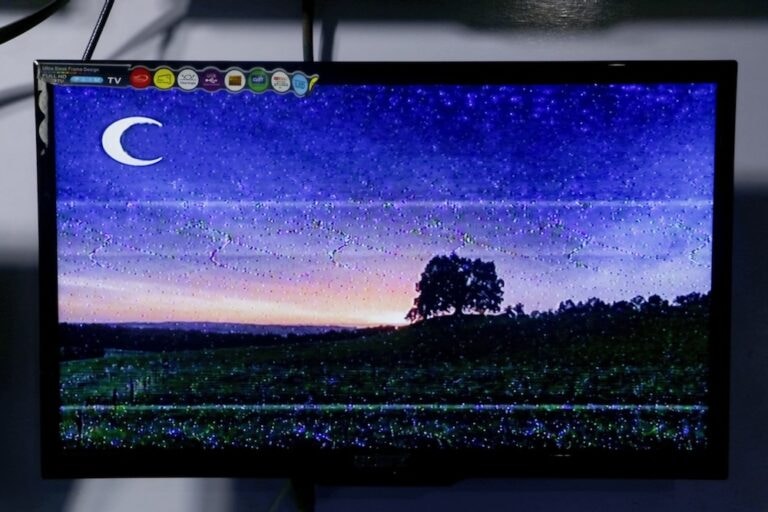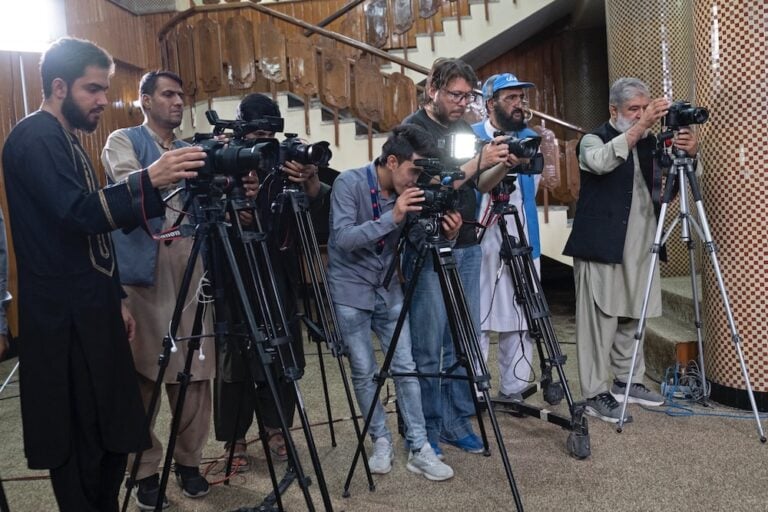(RSF/IFEX) – Reporters Without Borders has appealed to President Hamid Karzai, currently attending the World Economic Forum in the Swiss resort of Davos, to quickly respond to the many appeals for clemency for Sayed Perwiz Kambakhsh, the young journalist who has been sentenced to death by a court in Mazar-i-Sharif, capital of the northern province […]
(RSF/IFEX) – Reporters Without Borders has appealed to President Hamid Karzai, currently attending the World Economic Forum in the Swiss resort of Davos, to quickly respond to the many appeals for clemency for Sayed Perwiz Kambakhsh, the young journalist who has been sentenced to death by a court in Mazar-i-Sharif, capital of the northern province of Balkh.
“Kambakhsh’s death sentence was the outcome of an unfair trial orchestrated by local officials and extremist religious leaders,” the organisation said. “We urge President Karzai to take a swift and clear decision in this case, which threatens press freedom in his country.”
A petition for Kambakhsh’s release can be signed on the Reporters Without Borders website at: http://www.rsf.org/article.php3?id_article=25199
The United Nations, many European countries and the European parliament’s president have all condemned Kambakhsh’s arrest and death sentence.
Balkh provincial state prosecutor Hafizullah Khaliqyar has nonetheless dismissed the charges that the court violated human rights and press freedom, insisting that the verdict was given “in accordance with Islam’s values.”
The case is now supposed to go before an appeal court, but Balkh provincial judge Fazel Wahab said “only President Hamid Karzai is in a position to pardon Kambakhsh because he confessed to his crime.”
Sayed Yaqub Ibrahimi, Kambakhsh’s brother, said the verdict was “unjust.” Kambakhsh was not represented by a lawyer and was forbidden to defend himself. It appears that Ibrahimi is the real target in this case. A respected journalist who has covered the political situation in the north for International War and Peace Reporting, an NGO, he has been getting death threats for months from the henchmen of local officials and the security forces have searched his home several times, warning him of more reprisals to come.
The culture and information ministry said it had no authority over the case because “neither Kambakhsh’s arrest nor conviction was linked to his journalistic activities” and therefore “it is not a press freedom violation.” The ministry nonetheless added that it was “confident that the Afghan judicial system will handle the issue of the death penalty with the utmost care and will render justice, especially as the lower court’s sentence is not final.”
Rahimullah Samandar, the head of the Afghanistan Independent Journalists Association, firmly condemned the trial and verdict on the grounds that they violated the constitutional rights to a legal defence and to free speech. He vowed to appeal to national and international courts, and called on President Karzai to overturn the verdict.
The French foreign ministry has expressed outrage at the verdict. “France stresses that it is completely opposed to the death penalty,” the ministry said. “Freedom of expression must be guaranteed, respecting the principles and values enshrined in the Afghan constitution.”
The president of the European parliament called on the Afghan authorities on 18 January 2008 to release Kambakhsh.


